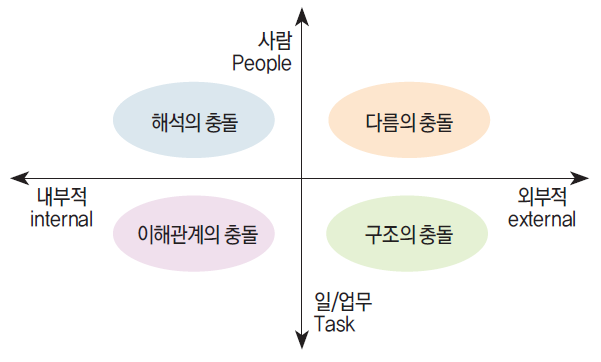Recently, unlike in the past, awareness of cancer has changed significantly. In the past, cancer was thought to occur mainly in the elderly, so it is not a big concern among young people, but recently, regardless of age, interest in health has increased and awareness of cancer has increased. Thyroid cancer, which occurs frequently among women in particular, was known as the second most common cancer after stomach cancer. I’ve looked at the cause of thyroid cancer and how to deal with it in detail.

Thyroid cancer, a malignant tumor that occurs in the thyroid gland, was sometimes considered a “gentle cancer.” The reason for this perception was that thyroid cancer progresses slowly and is easy to detect early.

When swelling was felt in the neck or looked unusual, many people visited medical institutions for thyroid examinations. Early detection of abnormal symptoms and examination could detect cancer in the early stages, and in this case, the prognosis was often good. However, it was important to get proper diagnosis and treatment because it is not desirable to leave it alone just because the prognosis is good.

The thyroid gland served as an air passage and was a butterfly-shaped organ located in front of the airway. Thyroid hormones secreted from here played an important role in the body’s metabolic process.

When thyroid problems occurred, symptoms such as indigestion, weight change, body temperature control problems, nervousness, swelling of hands and feet could appear. These symptoms can cause autonomic nerve abnormalities even if they are not thyroid cancer, and could cause thyroid cancer without proper treatment.

Immediate medical attention was needed if thyroiditis touched. In many cases, there were no pain or clear symptoms and they were found at regular medical examinations. If the thyroid aneurysm was positive, continuous observation was required, and it was necessary to check for addictive and non-toxic nodules.

Addictive nodules could lead to chronic diseases such as hyperthyroidism. In most cases, it is confirmed to be a non-toxic nodule, but in any case, immediate treatment was required when symptoms were expressed.

There were various causes of thyroid cancer that caused thyroiditis. It includes iodine deficiency, radiation exposure, lifestyle imbalance, drinking and smoking, thyroid hormone abnormalities, and genetic factors. In the case of small nodules, there were no symptoms and it could be difficult to detect early, and the enlarged nodules could compress the airway or cause noticeable edema. It was important to visit the medical institution as soon as these changes were detected.

Thyroid cancer, sometimes mistaken for “gentle cancer,” was a false perception. Thyroid cancer has a relatively good prognosis and may progress slowly compared to other cancers, but it was dangerous to neglect or neglect it.

In particular, early diagnosis and treatment were very important as thyroid cancer had few initial symptoms and the prognosis could be bad if detected late, and recently it has been reported that thyroid cancer progresses faster.

How to diagnose and treat thyroid cancer When discomfort or swelling occurs in the tree area, I visited a medical institution to check the thyroid condition. Cancer was diagnosed through ultrasound and fine-needle aspiration cytology.
.jpg?type=w800)
If diagnosed with thyroid cancer, an integrated treatment approach was carried out, including surgery to remove malignant tumors, radiation therapy, and chemotherapy as needed. The development of modern medicine reduced postoperative problems, but the treatment process could be complicated if there was multiple thyroid cancer or lymph node metastasis.

importance of post-treatment careAfter thyroid cancer treatment, follow-up observation was essential. Most cancers are at risk of recurrence or metastasis within five years, and intensive management was required at this time. Scars around the neck after surgery could become thinner over time, and scar treatment aids could be used if necessary. Voice changes after surgery generally recover three to six months after surgery, but in some cases complications may occur, so consultation with medical staff was required.prevention and continuous management of metastasis after cancer treatmentEfforts to recover health after cancer treatment were essential. It was important to actively engage in treatment and management to prevent recurrence and metastasis. Our hospital provided pre- and post-surgery management after cancer diagnosis, rehabilitation treatment for recovery, and continuous health care.In order to improve problems such as indigestion, gastrointestinal disorders, and restrictions on physical activity due to adhesion of muscles and tissues that can occur during surgery, our hospital provided 1:1 oriental medicine treatment. Acupuncture, moxibustion, cupping, herbal medicine prescription and manual therapy helped strengthen physical strength and normalize physical function. These comprehensive treatments helped overcome cancer and return to normal life.In order to improve problems such as indigestion, gastrointestinal disorders, and restrictions on physical activity due to adhesion of muscles and tissues that can occur during surgery, our hospital provided 1:1 oriental medicine treatment. Acupuncture, moxibustion, cupping, herbal medicine prescription and manual therapy helped strengthen physical strength and normalize physical function. These comprehensive treatments helped overcome cancer and return to normal life.In order to improve problems such as indigestion, gastrointestinal disorders, and restrictions on physical activity due to adhesion of muscles and tissues that can occur during surgery, our hospital provided 1:1 oriental medicine treatment. Acupuncture, moxibustion, cupping, herbal medicine prescription and manual therapy helped strengthen physical strength and normalize physical function. These comprehensive treatments helped overcome cancer and return to normal life.Previous Image Next ImagePrevious Image Next ImagePrevious Image Next ImagePrevious Image Next Image

